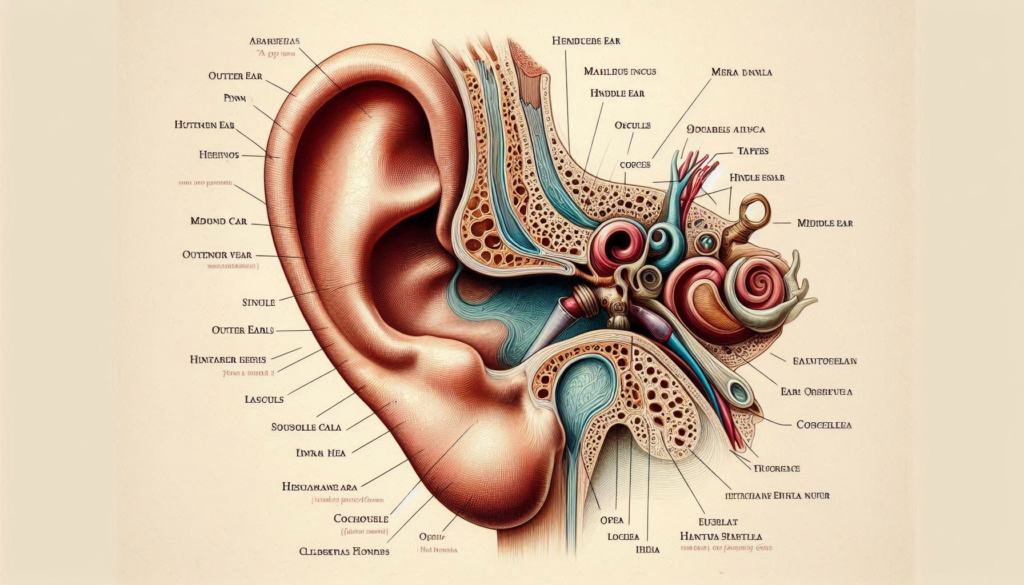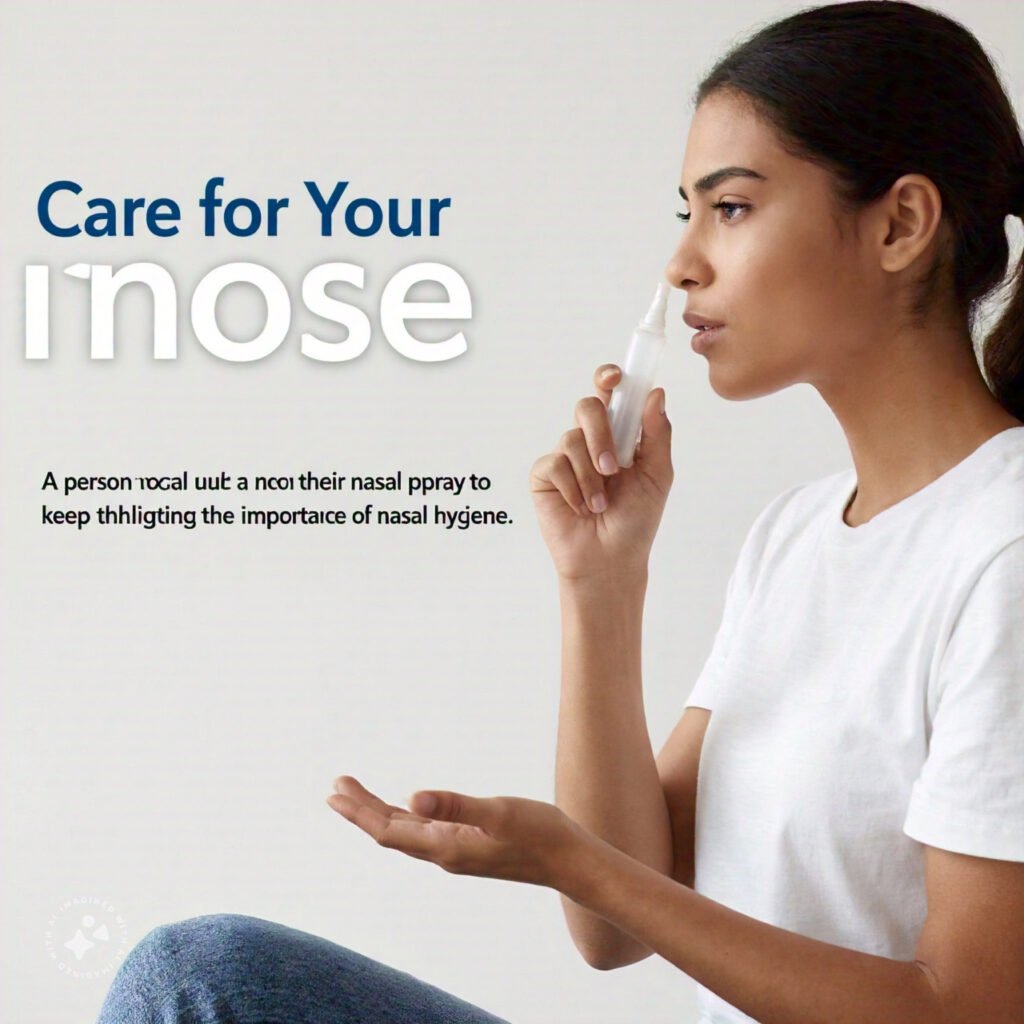ENT Wellness: 5 Essential Tips for Enhanced Health
Discover five transformative wellness tips for improved ENT health and overall well-being in our latest blog post.


Introduction
Overview of the Importance of ENT Wellness
ENT wellness is crucial for maintaining the health of your ears, nose, and throat. Proper care can prevent common ENT issues and improve your overall quality of life.
Brief Explanation of Common ENT Issues
Common ENT issues include ear infections, sinusitis, allergies, and throat infections. These conditions can cause discomfort and affect your daily activities if not managed properly.

Tip 1: Maintain Ear Health
Importance of Ear Health
Maintaining ear hygiene is essential for preventing infections and hearing loss. Proper ear care helps keep your ears clean and healthy, reducing the risk of common ear problems such as ear infections, wax buildup, and hearing loss. Good ear hygiene practices can also improve your overall quality of life by ensuring that your hearing remains sharp and clear.
Tips for Preventing Ear Infections and Hearing Loss
- Avoid Inserting Objects into Your Ears
- Importance: Inserting objects like cotton swabs, hairpins, or fingers into your ears can push earwax deeper into the ear canal, causing blockages and increasing the risk of infections and damage to the eardrum.
- How to Avoid: Clean the outer part of your ears with a damp cloth. If you feel the need to remove earwax, consider using ear drops designed to soften wax or consult a healthcare professional for safe removal.
- Keep Ears Dry
- Importance: Moisture in the ears can create an environment conducive to bacterial and fungal growth, leading to infections such as swimmer’s ear.
- How to Keep Ears Dry: After swimming or bathing, gently dry your ears with a towel. Tilt your head to each side to allow any trapped water to escape. Consider using earplugs while swimming to prevent water from entering your ears.
- Regular Check-Ups
- Importance: Regular check-ups with an audiologist or healthcare provider can help detect and address ear problems early, preventing complications and preserving your hearing.
- How to Schedule Check-Ups: Schedule annual hearing tests, especially if you are exposed to loud noises regularly or have a history of ear problems. Follow your healthcare provider’s recommendations for ear care.
- Protect Your Ears from Loud Noises
- Important: Exposure to loud noises can damage the delicate structures of the inner ear, leading to noise-induced hearing loss.
- How to Protect Your Ears: Use earplugs or noise-canceling headphones in noisy environments, such as concerts, construction sites, or while using loud machinery. Keep the volume at a safe level when listening to music through headphones or earbuds.
- Avoid Using Ear Candles
- Importance: Ear candling is a practice that involves inserting a lit, hollow candle into the ear canal. It is not recommended by healthcare professionals as it can cause burns, blockages, and other injuries.
- How to Avoid: Instead of ear candling, use safer methods for ear cleaning, such as ear drops or professional ear cleaning services.
- Manage Earwax Buildup
- Importance: While earwax helps protect the ear canal from dust and microorganisms, excessive buildup can cause blockages and hearing problems.
- How to Manage Earwax: Use over-the-counter ear drops to soften the wax and facilitate its natural removal. Avoid using cotton swabs or other objects to remove ear wax, as this can push it deeper into the ear canal.
- Stay Informed About Medications
- Importance: Some medications can have side effects that affect your hearing or ear health.
- How to Stay Informed: Discuss any medications you are taking with your healthcare provider and ask about potential side effects related to ear health. Follow their recommendations for monitoring and managing these side effects.
- Practice Good Hygiene
- Importance: Good overall hygiene can help prevent infections that may affect the ears.
- How to Practice Good Hygiene: Wash your hands regularly to prevent the spread of germs. Avoid sharing earphones or earbuds with others, and clean them regularly to remove dirt and bacteria.
By following these detailed tips, you can maintain excellent ear hygiene, prevent ear infections, and protect your hearing.

Tip 2: Care for Your Nose
Importance of Nasal Hygiene
Nasal hygiene is crucial for maintaining the health of your nasal passages and preventing infections. Proper care can help you breathe easier, reduce the risk of sinus infections, and manage allergies effectively. Keeping your nasal passages clean and moist is essential for overall respiratory health.
Tips for Preventing Sinus Infections and Allergies
- Use Saline Nasal Sprays
- Importance: Saline nasal sprays help keep your nasal passages moist and clear of irritants. They can flush out allergens, dust, and other particles that may cause irritation and infection.
- How to Use: Use a saline nasal spray daily, especially during allergy season or in dry environments. Tilt your head slightly forward, insert the nozzle into one nostril, and spray while breathing in gently. Repeat for the other nostril.
- Avoid Allergens
- Importance: Identifying and avoiding allergens that trigger your symptoms can significantly reduce the risk of sinus infections and allergic reactions.
- How to Avoid Allergens: Keep windows closed during high pollen seasons, use air purifiers to reduce indoor allergens, and regularly clean your home to remove dust and pet dander. Consider using hypoallergenic bedding and vacuuming frequently with a HEPA filter vacuum.
- Stay Hydrated
- Importance: Drinking plenty of water helps keep your nasal passages hydrated and prevents dryness, which can lead to irritation and infection.
- How to Stay Hydrated: Aim to drink at least 8 glasses of water daily. Herbal teas and warm broths can also help keep your nasal passages moist.
- Practice Good Hygiene
- Importance: Good hygiene practices can prevent the spread of germs and reduce the risk of infections.
- How to Practice Good Hygiene: Wash your hands regularly with soap and water, especially after blowing your nose, coughing, or sneezing. Avoid touching your face with unwashed hands to prevent the transfer of germs to your nasal passages.
- Use a Humidifier
- Importance: Dry air can irritate your nasal passages and increase the risk of infections. A humidifier adds moisture to the air, helping to keep your nasal passages moist.
- How to Use a Humidifier: Use a humidifier in your bedroom, especially during dry seasons or in areas with low humidity. Ensure the humidifier is clean to prevent the growth of mold and bacteria.
- Avoid Smoking and Secondhand Smoke
- Importance: Smoking and exposure to secondhand smoke can irritate your nasal passages and increase the risk of sinus infections and allergies.
- How to Avoid Smoke: If you smoke, seek help to quit. Avoid being around smokers and stay in smoke-free environments.
- Manage Allergies with Medication
- Importance: Proper management of allergies can reduce the risk of sinus infections and improve your overall nasal health.
- How to Manage Allergies: Consult with your healthcare provider about appropriate allergy medications, such as antihistamines, decongestants, or nasal corticosteroids. Follow the prescribed treatment plan to keep your symptoms under control.
- Practice Nasal Irrigation
- Importance: Nasal irrigation can help flush out mucus, allergens, and irritants from your nasal passages, reducing the risk of infections.
- How to Practice Nasal Irrigation: Use a neti pot or nasal irrigation bottle with a saline solution. Tilt your head to one side over a sink, insert the spout into one nostril, and allow the solution to flow through your nasal passages and out the other nostril. Repeat for the other side.
By following these detailed tips, you can maintain excellent nasal hygiene, prevent sinus infections, and manage allergies effectively.
Tip 3: Keep Your Throat Healthy
Importance of Throat Care
Thorat care is essential for preventing infections and maintaining vocal health. The throat plays a crucial role in breathing, swallowing, and speaking, so keeping it healthy is vital for overall well-being. Proper throat care can help you avoid discomfort, infections, and long-term damage to your vocal cords.
Tips for Preventing Throat Infections and Maintaining Vocal Health
- Stay Hydrated
- Importance: Drinking plenty of water keeps your throat moist and helps prevent dryness and irritation. Hydration is crucial for maintaining the mucous membranes that line your throat, which act as a barrier against infections.
- How to Stay Hydrated: Aim to drink at least 8 glasses of water daily. Herbal teas and warm broths can also help soothe the throat and keep it hydrated.
- Avoid Irritants
- Importance: Irritants such as smoke, pollution, and strong chemicals can damage the throat and increase the risk of infections and vocal strain.
- How to Avoid Irritants: Avoid smoking and exposure to secondhand smoke. Use air purifiers to reduce indoor pollutants and wear masks in areas with high pollution levels.
- Practice Good Vocal Hygiene
- Importance: Proper vocal hygiene helps prevent strain and damage to the vocal cords. This is especially important for individuals who use their voice frequently, such as singers, teachers, and public speakers.
- How to Practice Good Vocal Hygiene: Avoid yelling or speaking loudly for extended periods. Use a microphone if you need to project your voice. Practice vocal warm-ups before speaking or singing, and take regular breaks to rest your voice.
- Maintain Good Oral Hygiene
- Importance: Good oral hygiene helps prevent infections that can spread to the throat. Bacteria from the mouth can cause throat infections if not properly managed.
- How to Maintain Good Oral Hygiene: Brush your teeth at least twice a day, floss daily, and use an antiseptic mouthwash. Regular dental check-ups are also important for maintaining oral health.
- Use a Humidifier
- Importance: Dry air can irritate the throat and vocal cords, leading to discomfort and an increased risk of infections.
- How to Use a Humidifier: Use a humidifier in your home, especially during dry seasons or in areas with low humidity. Ensure the humidifier is clean to prevent the growth of mold and bacteria.
- Avoid Excessive Caffeine and Alcohol
- Importance: Caffeine and alcohol can dehydrate the body and dry out the throat, increasing the risk of irritation and infections.
- How to Avoid Excessive Coffee and Alcohol: Limit your intake of caffeinated beverages like coffee and tea, and avoid excessive alcohol consumption. Opt for hydrating drinks like water and herbal teas instead.
- Eat a Balanced Diet
- Importance: A balanced diet supports overall health, including the health of your throat. Nutrient-rich foods help maintain the immune system and prevent infections.
- How to Eat a Balanced Diet: Include a variety of fruits, vegetables, whole grains, lean proteins, and healthy fats in your diet. Foods rich in vitamins A, C, and E are particularly beneficial for throat health.
- Avoid Spicy and Acidic Foods
- Importance: Spicy and acidic foods can irritate the throat and exacerbate conditions like acid reflux, which can damage the throat lining.
- How to Avoid Spicy and Acidic Foods: Limit your intake of spicy dishes and acidic foods like citrus fruits and tomatoes. Opt for milder foods that are less likely to cause irritation.
- Practice Good Posture
- Importance: Good posture supports proper breathing and reduces strain on the throat and vocal cords.
- How to Practice Good Posture: Sit and stand with your back straight and shoulders relaxed. Avoid slouching, which can restrict airflow and put pressure on the throat.
- Seek Medical Advice When Needed
- Importance: If you experience persistent throat pain, hoarseness, or other symptoms, it’s important to seek medical advice. Early diagnosis and treatment can prevent complications and ensure proper care.
- How to Seek Medical Advice: Schedule regular check-ups with your healthcare provider and consult a specialist if you have ongoing throat issues.
By following these detailed tips, you can maintain a healthy throat, prevent infections, and ensure your vocal health remains strong.
Tip 4: Practice Good Hygiene
General Hygiene Practices for ENT Health
Good hygiene practices are crucial for preventing infections and maintaining ENT health. Proper hygiene can help you avoid common ENT issues such as ear infections, sinusitis, and throat infections. Here are some general hygiene practices to follow:
- Wash Hands Regularly: Use soap and water to wash your hands thoroughly, especially before eating, after using the restroom, and after coughing or sneezing.
- Avoid Touching Your Face: Try not to touch your eyes, nose, or mouth with unwashed hands to prevent the spread of germs.
- Clean Surfaces: Regularly clean and disinfect frequently touched surfaces, such as doorknobs, light switches, and mobile devices.
- Use Tissues: Use tissues to cover your mouth and nose when you cough or sneeze and dispose of them properly.
- Stay Home When Sick: If you are feeling unwell, stay home to avoid spreading illness to others.
The importance of Handwashing and Avoiding Contact with Sick Individuals
Handwashing is one of the most effective ways to prevent the spread of infections. Here’s why it’s so important:
- Removes Germs: Washing your hands with soap and water removes germs that can cause infections. This is especially important after touching surfaces that may be contaminated.
- Prevents Illness: Regular handwashing can prevent respiratory infections, such as colds and flu, as well as gastrointestinal infections.
- Protects Others: By washing your hands, you reduce the risk of spreading germs to others, helping to protect your family, friends, and community.
To wash your hands effectively:
- Wet Your Hands: Use clean, running water to wet your hands.
- Apply Soap: Apply enough soap to cover all surfaces of your hands.
- Scrub Thoroughly: Rub your hands together, scrubbing all surfaces, including the backs of your hands, between your fingers, and under your nails, for at least 20 seconds.
- Rinse Well: Rinse your hands thoroughly under clean, running water.
- Dry Your Hands: Use a clean towel or air dry your hands.
Avoiding contact with sick individuals is also crucial for preventing the spread of infections.
- Keep Distance: Maintain a safe distance from people who are visibly sick, especially if they are coughing or sneezing.
- Avoid Sharing Personal Items: Do not share items such as utensils, towels, or bedding with someone who is sick.
- Stay Informed: Be aware of any outbreaks or health advisories in your area and take appropriate precautions.
By practicing excellent hygiene and being mindful of your interactions with others, you can significantly reduce the risk of ENT infections and maintain better overall health.
Tip 5: Stay Hydrated and Eat a Balanced Diet
Importance of Hydration for ENT Health
Staying hydrated is crucial for maintaining the health of your ears, nose, and throat (ENT). Proper hydration helps keep the mucous membranes in these areas moist, which is essential for protecting against infections and irritants. When the mucous membranes are well-hydrated, they can effectively trap and eliminate pathogens, reducing the risk of infections such as sinusitis, ear infections, and throat infections. Additionally, hydration helps thin mucus, making it easier to clear from the nasal passages and throat, which can alleviate congestion and discomfort.
Foods That Support ENT Wellness
- Fruits and Vegetables
- Importance: Fruits and vegetables are rich in vitamins, minerals, and antioxidants that support the immune system and overall health. They provide essential nutrients that help maintain the integrity of the mucous membranes and reduce inflammation.
- Examples: Citrus fruits (oranges, lemons, and grapefruits) are high in vitamin C, which boosts the immune system. Leafy greens (spinach, kale) are rich in vitamins A and C, which support mucous membrane health. Berries (strawberries, blueberries) are packed with antioxidants that reduce inflammation.
- Lean Proteins
- Importance: Lean proteins provide the building blocks for the body’s tissues, including the mucous membranes in the ENT region. They also support the immune system by providing essential amino acids.
- Examples: Chicken, turkey, fish, and legumes (beans, lentils) are excellent sources of lean protein. These foods are low in fat and high in essential nutrients that promote overall health.
- Whole Grains
- Importance: Whole grains are a beneficial source of fiber, vitamins, and minerals that support overall health and well-being. They help maintain energy levels and support the immune system.
- Examples: Brown rice, quinoa, oats, and whole wheat bread are nutritious whole grains that provide sustained energy and essential nutrients.
- Healthy Fats
- Importance: Healthy fats are essential for maintaining the health of cell membranes, including those in the ENT region. They also help reduce inflammation and support the immune system.
- Examples: Avocados, nuts, seeds, and olive oil are sources of healthy fats that promote overall health and reduce inflammation.
- Hydrating Foods
- Importance: Foods with high water content help keep the body hydrated and support the health of the mucous membranes in the ENT region.
- Examples: Cucumbers, watermelon, celery, and tomatoes are hydrating foods that contribute to overall hydration and support ENT health.
- Herbal Teas
- Importance: Herbal teas can provide hydration and have soothing properties that benefit the throat and nasal passages. Some herbal teas also have anti-inflammatory and antimicrobial properties.
- Examples: Chamomile tea, ginger tea, and peppermint tea are soothing options that can help reduce inflammation and support ENT health.
- Probiotic-Rich Foods
- Importance: Probiotics support gut health, which is closely linked to the immune system. A healthy gut can help prevent infections and support overall health.
- Examples: Yogurt, kefir, sauerkraut, and kimchi are rich in probiotics that promote gut health and support the immune system.
- Vitamin D-Rich Foods
- Importance: Vitamin D is essential for immune function and overall health. It helps regulate the immune response and reduce the risk of infections.
- Examples: Fatty fish (salmon, mackerel), fortified dairy products, and egg yolks are excellent sources of vitamin D.
By staying hydrated and incorporating these nutrient-rich foods into your diet, you can support the health of your ears, nose, and throat and maintain overall wellness.
Conclusion
Recap of the 5 Essential Health Tips for ENT Wellness
- Maintain Ear Health
- Care for Your Nose
- Keep Your Throat Healthy
- Practice Good Hygiene
- Stay Hydrated and Eat a Balanced Diet
Encouragement to Adopt These Practices for Vibrant Living
Incorporating these essential health tips into your daily routine can help you maintain ENT wellness and enjoy a vibrant, healthy life.
Final Thoughts on the Importance of a Healthy Lifestyle for ENT Health
A healthy lifestyle is key to preventing and managing ENT issues. By adopting these practices, you can control your ENT health and improve your overall well-being.
today.
Incorporate these essential health tips into your daily routine to maintain ENT wellness and enjoy a vibrant, healthy life. A healthy lifestyle is crucial in preventing and managing ENT issues, so make sure to prioritize hydration and include nutrient-rich foods in your diet. By following these practices, you can improve your overall well-being and take control of your ENT health.

